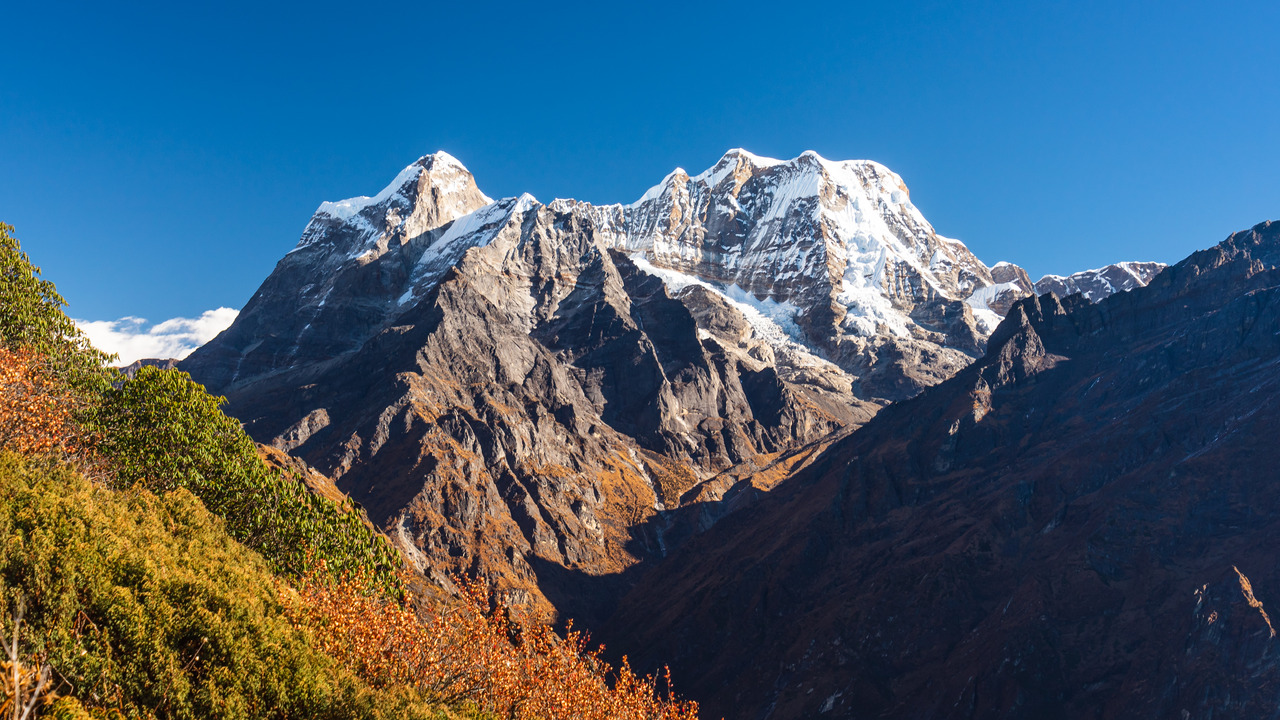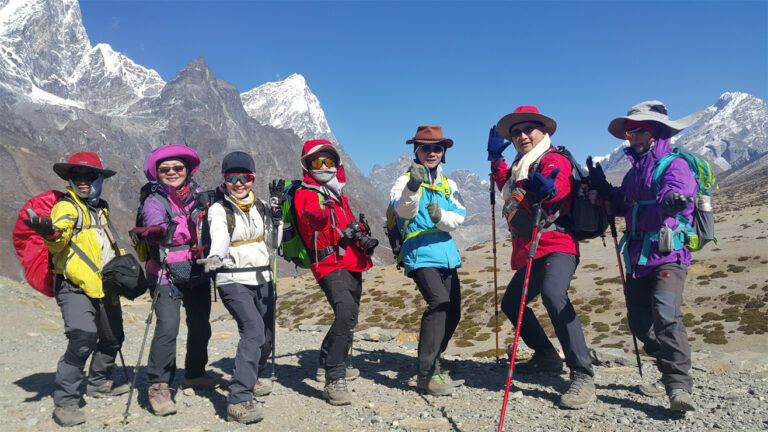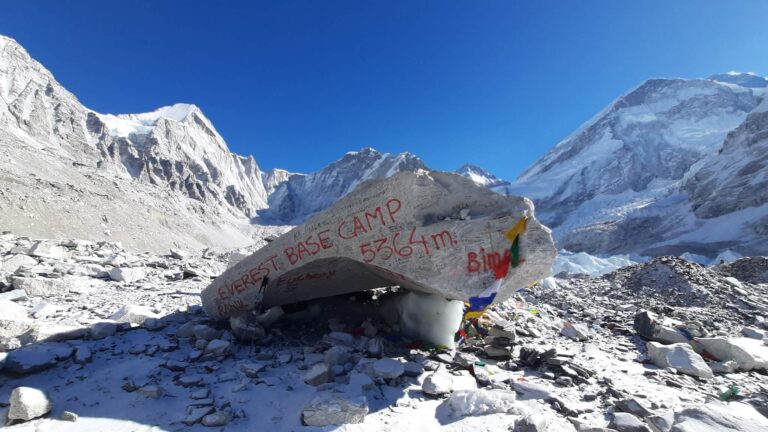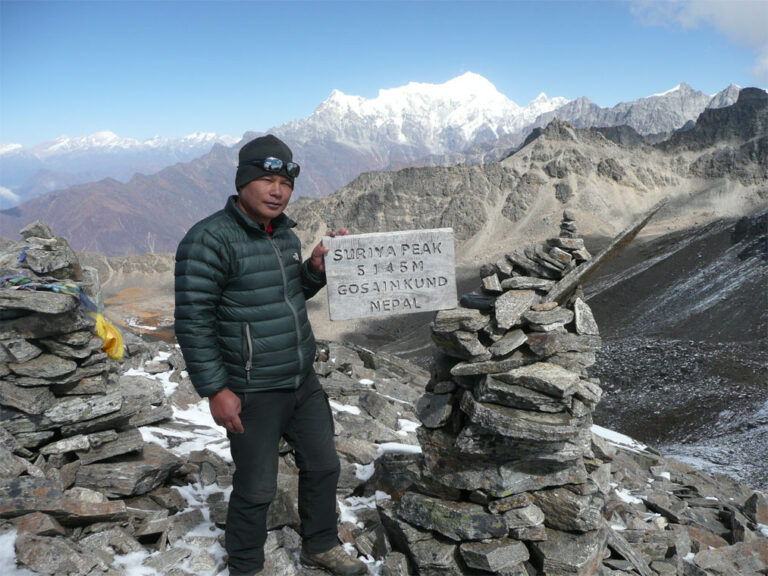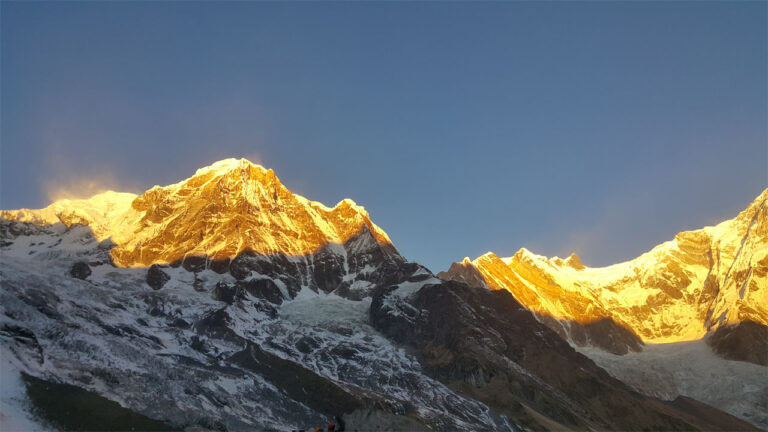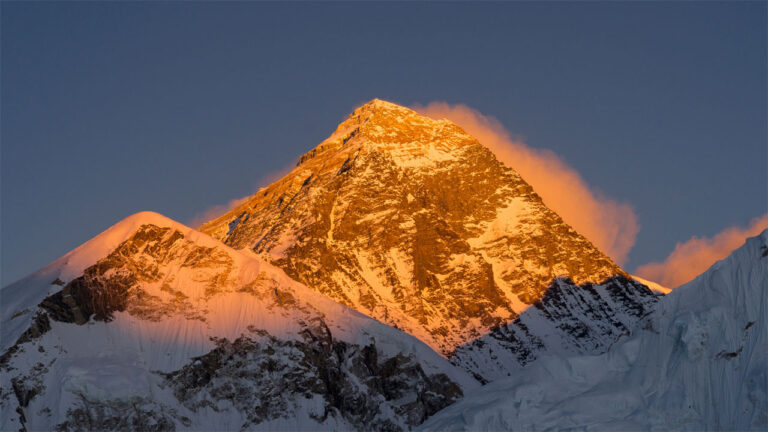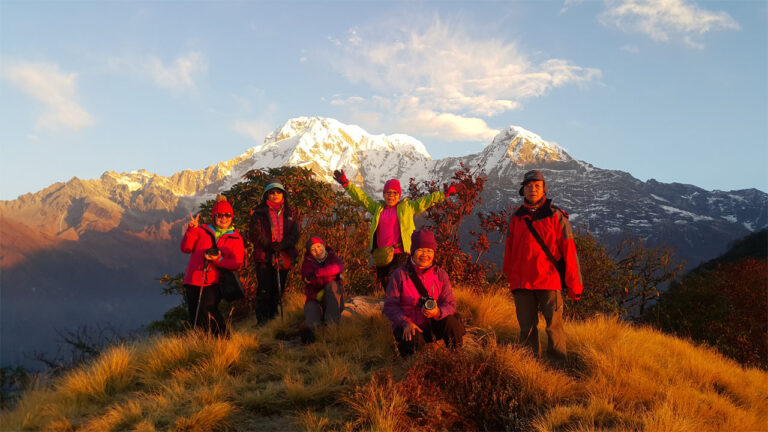How to get Mera Peak Climbing Guide?
Mera Peak is a popular trekking peak in the Khumbu region of Nepal. At an altitude of 6,476 meters, it is the highest trekking peak in Nepal and offers spectacular views of some of the world’s highest peaks, including Everest, Lhotse, Cho Oyu, and Makalu.
Mera Peak climbing is a challenging trekking peak that requires a good level of fitness and some previous climbing experience. The climb involves steep ascents and descents, rocky terrain, and some technical sections of ice climbing. However, with the right training and preparation, it is an achievable climb for many people.
The climb typically takes around 18-20 days, including acclimatization days and trekking to and from the base camp. During the climb, you will be accompanied by an experienced guide and a support team of porters and cooks who will take care of all the logistical aspects of the trek.
To climb Mera Peak, you will need to obtain a climbing permit from the Nepal Mountaineering Association and have the necessary climbing gear, including crampons, ice axes, and ropes. It is also essential to have proper travel and medical insurance.
Mera Peak Itinerary
A typical Mera Peak climbing itinerary takes around 18-20 days, including acclimatization days and trekking to and from the base camp. Below is a sample itinerary for Mera Peak climbing:
Day01: Arrive in Kathmandu and transfer to hotel.
Day02: Sightseeing in Kathmandu and preparation for the climb.
Day03: Fly from Kathmandu to Lukla (2,800m/9,186ft) and trek to Paiya (2,730m/8,956ft).
Day04: Trek from Paiya to Pangkongma (2,846m/9,336ft).
Day05: Trek from Pangkongma to Ningsow (2,863m/9,393ft).
Day06: Acclimatization day in Ningsow.
Day07: Trek from Ningsow to Chhatra Khola (2,800m/9,186ft).
Day08: Trek from Chhatra Khola to Kothe (3,691m/12,109ft).
Day09: Trek from Kothe to Thaknak (4,358m/14,295ft).
Day10: Acclimatization day in Thaknak.
Day11: Trek from Thaknak to Khare (5,045m/16,486ft).
Day12: Acclimatization day in Khare.
Day13: Trek from Khare to Mera La (5,415m/17,766ft).
Day14: Trek from Mera La to High Camp (5,800m/19,029ft).
Day15: Summit day and descend to Khare (6,461m/21,190ft) and then to Khare.
Day16: Spare day in case of bad weather.
Day17: Trek from Khare to Kothe.
Day18: Trek from Kothe to Thuli Kharka (1,980m/6,496ft).
Day19: Trek from Thuli Kharka to Lukla. Day 20: Fly from Lukla to Kathmandu.
Note that the itinerary may vary depending on the weather, the pace of the trek, and the acclimatization needs of the climbers. It is essential to choose a reputable trekking agency that provides experienced guides and support staff to ensure your safety and comfort throughout the climb.
Mera Peak Climbing Gears
Mera Peak climbing requires specialized mountaineering equipment to ensure your safety and comfort during the climb. Some of the essential climbing gears for Mera Peak climbing are:
- Mountaineering boots – to provide warmth and support for your feet in snowy conditions.
- Crampons – to provide traction on snow and ice.
- Ice Axe – to help you ascend and descend steep snow and ice slopes.
- Harness – to attach yourself to ropes and anchors during the climb.
- Climbing helmet – to protect your head from falling objects.
- Ascender/Descender – to help you climb and rappel.
- Carabiners – to attach yourself to ropes and anchors.
- Ropes – to help you climb and rappel safely.
- Sleeping bag – to keep you warm during overnight stays.
- Down jacket – to keep you warm in cold temperatures.
- Gaiters – to prevent snow and debris from entering your boots.
- Sunglasses and sunscreen – to protect your eyes and skin from UV rays.
- Headlamp – to provide light during early morning and night climbs.
- Trekking poles – to help you maintain balance and reduce stress on your knees.
It is important to make sure that all the gear you bring is of good quality and is suitable for the conditions on Mera Peak. You can rent most of the gear in Kathmandu.
How much Does it Cost for Mera Peak Climbing
The cost of Mera Peak climbing can vary depending on several factors, including the season, the duration of the climb, the number of people in your group, the level of support services you require, and the trekking company you choose.
On average, the cost for Mera Peak climbing can range from $2,500 to $5,000 per person. This cost typically includes the following:
- Climbing permit fee
- Trekkers Information Management System (TIMS) card
- Domestic flights to and from Lukla
- Accommodation in teahouses or tents during the trek
- Three meals a day during the trek
- Guide and porter services
- Climbing equipment such as ropes, ice axes, and crampons
- Insurance for climbing guides and porters
Additional costs that are not typically included in the package are:
- International flights to and from Nepal
- Travel and medical insurance
- Visa fees
- Tips for guides and porters
- Personal gear and equipment
- Additional nights in Kathmandu or other cities
It is important to choose a reputable trekking company that provides all the necessary services and equipment and has experienced guides and support staff to ensure your safety and comfort throughout the climb.
why to hire Mera Peak Climbing Guide
Hiring a Mera Peak climbing guide is highly recommended for several reasons:
- Safety: Climbing Mera Peak involves technical climbing skills and involves crossing glaciers and steep slopes. A professional climbing guide has the necessary training and experience to ensure your safety and prevent accidents.
- Navigation: The Mera Peak route can be challenging to navigate, especially in bad weather conditions. A guide will know the route inside out and can lead you safely through challenging sections of the climb.
- Acclimatization: Acclimatization is crucial for climbing Mera Peak as it helps prevent altitude sickness. A climbing guide will help you to acclimatize correctly and gradually, reducing the risk of altitude-related illnesses.
- Equipment: A professional guide will have access to high-quality climbing equipment and will ensure that you have the necessary gear for the climb.
- Local Knowledge: A local guide will have a deep understanding of the local culture and can provide you with insights into the local way of life, history, and customs, enhancing your overall trekking experience.
- Support: Climbing Mera Peak can be physically and mentally challenging. A guide can provide support and encouragement, helping you to stay motivated and focused on your goal.
Hiring a Mera Peak climbing guide is, therefore, an excellent investment, ensuring that you have a safe, enjoyable, and successful climb.

